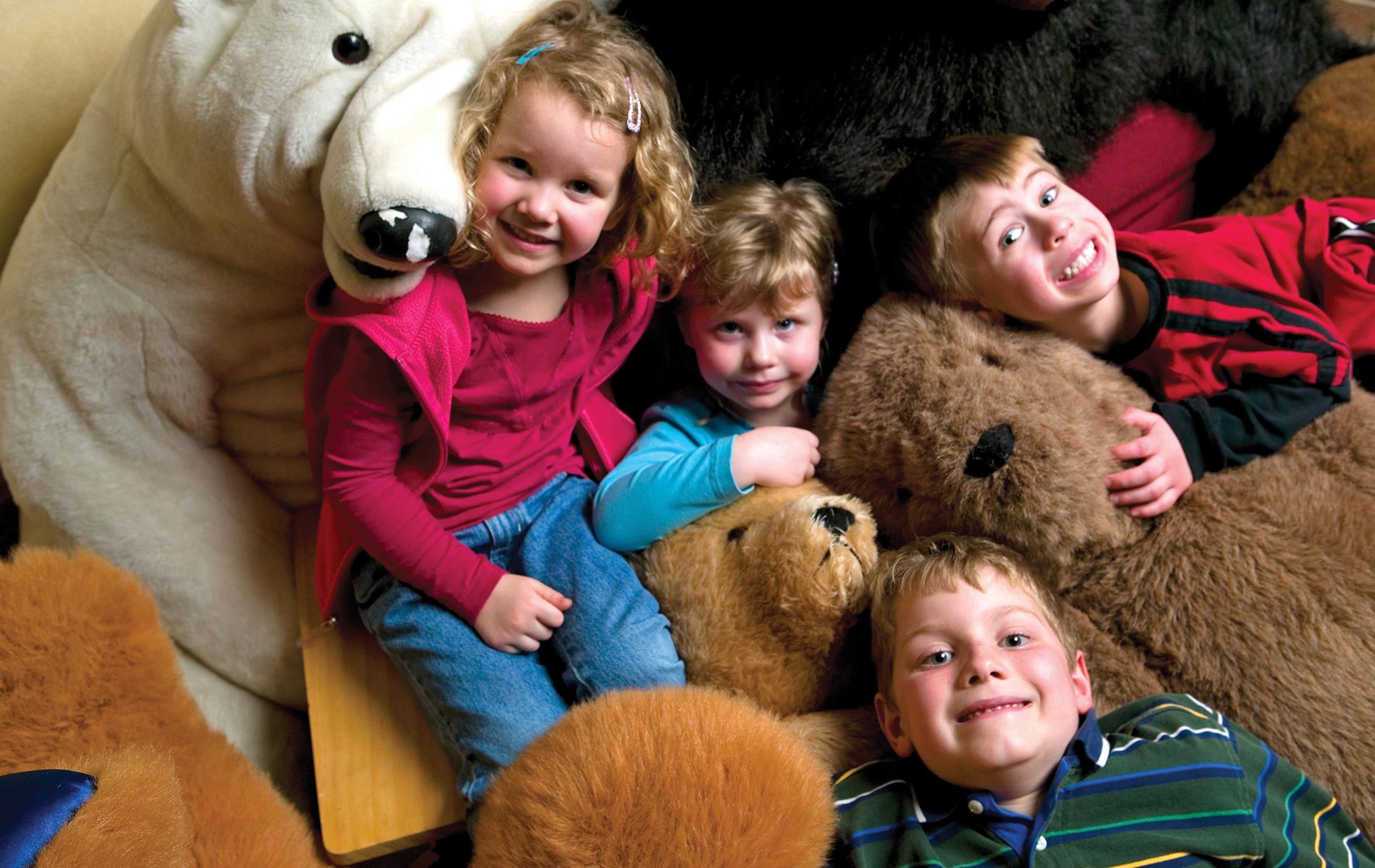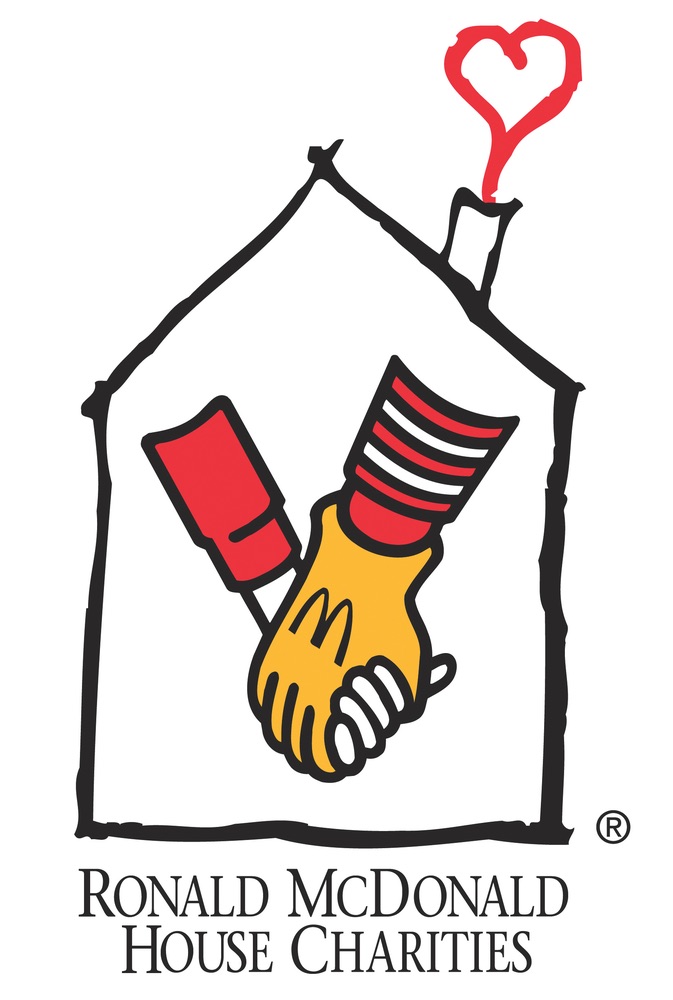
vie-magazine-hero-ronald-mcdonald-house-2009
Lending a Hand when Tragedy Strikes
Ronald McDonald House Aiding Families of Sick Children in Northwest Florida
By Kirsten Reed
The day was September 10, 1998. It was my father’s birthday, but my husband and I were preparing a celebration of our own. I was in labor, and we were certain to welcome the arrival of our second child within the next day. What would we have: a bouncing baby boy or another beautiful girl? Would there be football or princess birthdays in our future, with a grandfather sharing in the cake? The excitement mounted with each contraction. We would soon be meeting our newest family member, and we could not wait to shower this child with love.
But the story didn’t unfold as planned. At 7:20 p.m. our baby girl arrived in this world, but our ears were not met with her cries. Rather, we heard the deafening silence of a child who was not breathing. I was given one minute to touch her hand through an incubator, and then she was gone. Words buzzed around in my muddled mind: “life flight to Sacred Heart,” “blood transfusion,” “intubation, “hours to live—maybe,” “unsure of her future.” I was alone in my hospital room under a blanket of sorrow and loneliness.
That was the beginning of a nightmare from which I could not wake up. For the next six weeks, our sweet baby girl, Haleigh Amelia, battled for her life. She struggled for every breath, battled seizures, underwent surgeries and fought to grow. The test results were always the same—severe trauma to the brain. Her prognosis was grim, and her future was uncertain.
[double_column_left]During Haleigh’s long stay at Sacred Heart Hospital in Pensacola, we were lucky to have the use of a nearby hotel suite through the generosity of a friend. This allowed my husband and me to make full use of the limited visiting hours without making a daily 100-mile commute. It is every parent’s nightmare to watch a child suffer or, worse, succumb to death. You can’t truly understand it unless you have walked that dark and uncertain road.
[/double_column_left] [double_column_right]
A Lonely Path Made Brighter
Not everyone has the same resources that we did—a supportive network of friends and lodging right next to the hospital. Luckily, Ronald McDonald House of Pensacola helps even the playing field. Its mission is to make life more bearable for families dealing with seriously ill children by providing a safe haven where they can lay their heads and still be close to their children. For these families, the Ronald McDonald House (RMH) is a place of comfort where they can eat and sleep, a respite from emotionally wrenching visits at Sacred Heart Hospital. Rooms are offered at little or no cost, which is a blessing during this time of strained financial resources. But RMH offers something much more valuable than a roof and a bed. It offers the emotional support of other parents sharing the same trials and tribulations—a priceless gift that cannot be duplicated.
“The House is a huge help financially for the families,” says Kim Henderson, area manager for Ronald McDonald House of Northwest Florida in Okaloosa and Walton counties. “But even more than that, people in similar situations are there too. The emotional network of bonding and support is amazing. Those families are so important to each other.”
Henderson has been involved with RMH for years, raising money and awareness for the cause and volunteering her time in a number of ways. Last June, Henderson assisted in the formation of a volunteer group called Helping Hands for the Ronald McDonald House, which, as the name implies, provides assistance with nearly every aspect—from fundraisers to the running of the House. She has recruited forty volunteers over the last year and hopes to expand those numbers as awareness of Helping Hands grows.

Community fundraisers are an important way not only to help support RMH financially, but also to spread the word about the good work being done there.
The Roots of RMH
The idea for the Ronald McDonald House came about in the 1970s, when Fred Hill, a member of the Philadelphia Eagles and a parent whose daughter had fought leukemia, turned his firsthand experience with catastrophe into something positive. After seeing other parents sleeping in their cars, in waiting rooms and on the hallway floors of hospitals to be near their ailing children, Hill decided to start a home away from home for families to stay in while their children were hospitalized. He approached Ray Kroc of the McDonald’s Corporation, asking him to lend the Ronald McDonald name to the home, since Ronald McDonald is an icon that represents happiness for children.
Thirty-four years later, there are more than 250 Ronald McDonald Houses in thirty countries, all designed to aid families during their darkest hours. Unfortunately, the need at Pensacola RMH continues to grow, due in part to local population influxes and the increased bed-count at Sacred Heart Hospital NICU. Funds for this growth are in short supply, however. Several fundraisers are in the works to generate money for expansion, which will allow the Ronald McDonald House to accommodate more families, rather than turning away increasing numbers of families each year. Plans for the new RMH will expand the existing seven bedrooms to twenty-six and potentially serve an additional 551 families each year.
Henderson emphasizes the need for expansion. “In 2006, we served 202 families. In 2007, we served 240 families. Due to the limited size of RMH, we turned away families 2,300 times in those two years,” she says.
Because such a large percentage of the population served by RMH is east of Pensacola, Henderson has created more events that residents of those areas can support. “Sixty-five percent of our families come from Okaloosa, Walton and Bay counties, and they want to find a way to give back by helping our organization,” she said. “It isn’t always feasible for them to prepare a meal or come to Pensacola, so we decided to hold more fundraisers east of Pensacola.”
A Community Effort
Despite the “Ronald McDonald House” name, the not-for-profit organization is neither sponsored nor funded by the McDonald’s Corporation. It relies on donations from the public and business partners to sustain its mission. Henderson is quick to point out, however, that McDonald’s and Sacred Heart do offer support, though neither is required to do so.
Community fundraisers are an important way not only to help support RMH financially, but also to spread the word about the good work being done there. One example of this community support occurred in July, when the Hard Rock Café at Destin Commons sold two-dollar raffle tickets throughout the month, with an autographed Gavin DeGraw guitar as the prize. The event raised $500 for RMH.
A major fundraiser for the House took place October 11 at Hurricane Lanes in Destin. The event, Black Tie Bowling, featured participants bowling in formal wear, sipping champagne and competing in contests for prizes—all to help raise money for the charity. To add to the evening’s fun, Henderson says attendees were asked to bowl in some unusual ways. “Sometimes we had them bowl backwards or roll the ball between their legs,” she explains, adding that the giveaways were also a big draw for people.
Local businesses helped to offset the cost of the fundraiser by sponsoring frames and paying for strikes.
Donations big and small assist the mission of the Ronald McDonald House and, in turn, the families dealing with life-altering situations. I know all too well the difference it makes to be close to a child undergoing treatment. And I remain forever connected to parents who walk a similar path. Thanks to organizations like RMH, the burdens of shelter and comfort will be lifted for other families—a true gift indeed.
My story ended tragically on the morning of December 26, 2000, when my sweet baby girl Haleigh took her last breath as she lay under our Christmas tree staring at the twinkling lights.
— V —
For more information on Black Tie Bowling, or to learn more about Ronald McDonald House, call (850) 678-7243 or visit www.rmhpensacola.org.
Share This Story!
KEEP UP WITH THE LATEST STORIES FROM VIE
















































































































































